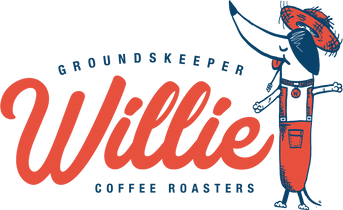New Single - Ethiopia Ayele Begashaw
We're kicking off the New Year with a bang, launching our first single, an Ethiopian natural from Ayele Begashaw.
Ayele Begashaw, grows and processes coffee on his 4-hectare farm Aricha, which is named after Ethiopia’s famed kebele (local village) of Aricha. Ayele’s farm is located near Yirgacheffe and the farm is privately owned and operated by Ayele and his family.

Being able to purchase a lot from a single producer in Ethiopia is rare and incredibly special. Most farmers are not able to connect to buyers directly and must sell their cherry at local washing stations where it is combined with other farmers’ lots, losing transparency and distinction. To access support to process and market his coffee separately, Bekele joined the Lalisaa Project, an initiative that aims to provide opportunity and resources for smallholder farmers and to connect them to overseas buyers like our friends at Melbourne Coffee Merchants, who we sourced these beans from.
By working with Lalisaa, a program he is enthusiastic to be a part of, he is now able to earn an ongoing, profitable income from his crop – which he uses to support his family and send his kids to school.
ABOUT THE FARM
Ayele’s farm sits at 1,900m above sea level. The farm’s high elevation, combined with the region’s cool climate, is ideal for the slow ripening of coffee cherries, leading to denser beans and a sweeter, more complex cup profile. Coffee is grown as a cash crop, alongside other food crops like corn, grain and bananas. The coffee is intercropped amongst native forest and grows under the shade of Birbira, Wanza, and Acacia trees. Like many Ethiopian smallholder farmers, Ayele uses organic farming practices that rely heavily on the manual labour of him and his family.

ABOUT THE COFFEE
This coffee is a mix of three JARC varieties, 74110, 74112 and 74165.
For many years, most Ethiopian coffee has only been described as being a mix of varieties that we refer to as “heirloom varieties.” This is a term that is all-encompassing and used by many actors in the coffee industry to generally categorise Ethiopian coffee varieties that are from native forest origins. Whilst this describes many of the varieties found in Ethiopia, it is also a bit simplistic and does not acknowledge the varieties that are already locally recognised and cultivated, or those that have been specifically developed and widely distributed by the Jimma Agricultural Research Centre (JARC).
JARC varieties were developed using “mother trees” from Ethiopia’s coffee forests, and are now grown for disease and pest resistance, as well as exceptional cup profile, and are released by number. For example, 74110, 74112 and 74116 are all widely propagated in the Sidama growing region. Along with these, Ethiopia is home to many native or “landrace” varieties in the region that were originally selected from the forest and have been propagated in the Sidama region for decades.
HOW IT WAS PROCESSED
This coffee was processed using the natural method; a complex process requiring a high level of attention to detail in order to be done well. Ethiopian coffee has been processed this way by generations of farmers who have mastered the art of the natural method through centuries of tradition and experience.
In collaboration with Lalisaa Project, Ayele employs best practices to dry his natural processed coffees, as the aim is to produce high quality, exportable grade coffee. This coffee is classified as Grade 1, indicating that a lot of effort has been put into the selection, grading and drying to ensure the very highest quality coffee is produced.
Each day, Ayele and his team selectively handpick the ripest red cherries. The cherries are meticulously hand-sorted prior to processing to remove unripe, overripe, or damaged fruit, in order to enhance the quality and sweetness of the cup.
The coffee is then graded by weight and spread evenly on raised African beds (screens) to dry in the sun. Initially, it is laid very thinly and turned regularly to ensure consistent drying and prevent over-fermentation. This is done very carefully to avoid damage to the fruit.

We send our thanks to Ayele and his family for producing such a beautiful Ethiopian coffee. We look forward to sharing it with you!
You can check out the beans here, or grab a tub for home!

